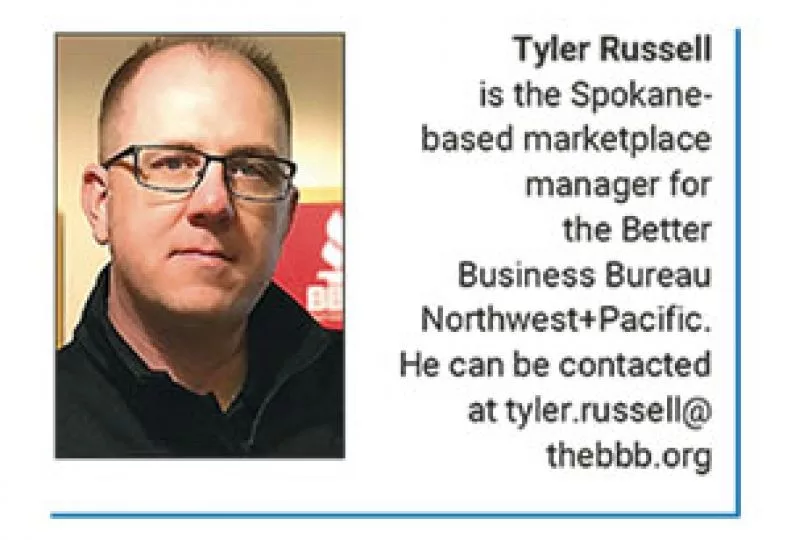
Home » A Bank inquiry scam tops list in recent BBB report
A Bank inquiry scam tops list in recent BBB report
Money wiring con also ranked among five riskiest

November 8, 2018
 Bank card and credit card company imposters, fraudulent directory listing and advertising, fake invoices, fake checks, and technical support frauds are the top five small business scam risks identified in a study.
Bank card and credit card company imposters, fraudulent directory listing and advertising, fake invoices, fake checks, and technical support frauds are the top five small business scam risks identified in a study.
Better Business Bureau, an Arlington Va.-based marketplace trust advocate made up of more than 100 independent BBB organizations in the U.S. and Canada, joined the Federal Trade Commission to undergo a study looking into scams that target small businesses.
The study, “Scams and Your Small Business” found that those scams are growing, pose a significant risk to business owners, and generally result in a higher monetary loss per incident than those targeting individuals. Boise-based BBB Northwest+Pacific, which has a Spokane office, participated in the study by surveying thousands of small businesses in Washington, Idaho, Montana, Oregon, Wyoming, Alaska, and Hawaii.
According to the study, the riskiest scam is the bank/credit card imposter scheme, in which scammers, under the guise of verifying account information, fool their targets into sharing their credit card or banking information.
The second riskiest scam for small businesses is a directory listing and advertising scam. As new businesses grow, so do their customer bases, and many look for new ways to get the word out about their products and services. Scammers ask small businesses to pay for an advertisement in a directory. In some cases, the directory isn’t widely circulated or is a total fake, and the ad is never circulated anywhere.
The fake check scam is the third riskiest and is a tactic used for a variety of frauds. Sometimes, the check is a payment for products or services, but it’s an overpayment, and scammers ask the business to wire back the difference. In other cases, they ask the overpayment to be sent to a third party for taxes or to purchase supplies. In either case, businesses are asked to deposit a fake check and wire the difference. The victim businesses later learn that the check is fake after the money has been wired to the scammers, and the business is liable for the missing funds.
“Anyone could be a scammer’s next target,” says Chuck Harwood, director of the Federal Trade Commission’s Northwest region.  “Small businesses are not immune from the threat, as the BBB’s new report shows, and the monetary losses may be sizeable.”
Harwood credits the team at BBB Northwest+Pacific for calling attention to the harm that scams that victimize small businesses do to the regional economy, and says the effort encourages dialogue about prevention and support for law enforcement actions against such scams.
Tyler Andrew, CEO of BBB Northwest+Pacific, says, “We knew that we needed thorough research to fully understand the types of scams targeting our small businesses. This study helps us to focus our fight against scammers by spotlighting how these con artists are tricking our businesses and how we can help minimize that impact.”
To determine the riskiest scams, the study used a measurement tool based on exposure, susceptibility, and monetary loss.
To guard against such scams, the Better Business Bureau recommends that small businesses make commitments to ensuring that their employees and customers stay safe. Make sure that your employees have proper training and discuss scams during team meetings.
Be sure to verify invoices and payments and never pay until you’ve confirmed you received the goods or services. Be diligent in creating clear procedures for approving invoices and make sure major spending can’t be triggered with an unexpected call, email, or invoice.
Get educated in the technology. Don’t always believe your caller ID, as it is easy to create legitimate looking websites and emails.
Do research on a new company before doing business. Make sure to look up it on www.bbb.org or ask for recommendations from other
businesses.
The “Scams and Your Small Business” report and more information on the subject is available at
bbb.org/smallbizscams.
Latest News Special Report Banking & Finance
Related Articles
Related Products

_web.webp?t=1769673727)
_web.webp?t=1769673728)
_web.webp?t=1769673735)
